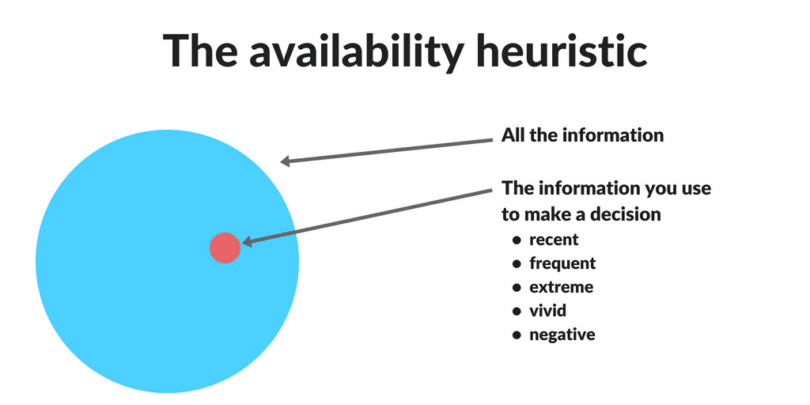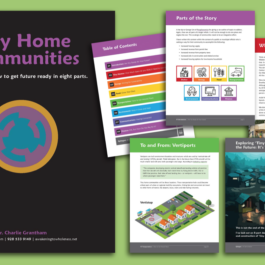What are the top 10 trends for the next ten years? Download the report here.

Your brain is constantly taking shortcuts, "heuristics" that are right more than wrong, and work at the intersection of speed and accuracy.
You take the availability shortcut when you rely on what you can easily recall instead of what's accurate.
Here's an example.
One afternoon I fell into a digital wormhole studying dementia and Alzheimer rates in Wisconsin. Immediately afterward, I met a friend for a drink to celebrate her retirement. When she couldn't remember an important date, a worry flashed through my mind, "Oh no, she's developing dementia!"
She wasn't. But I was suffering from availability bias, the mental shortcut that caused me to associate my friend's forgetfulness with something that was recent and vivid, my dementia research.
Read: Kent Hendricks on Availability Heuristic
See: The Cognitive Bias Codex
If you enjoyed this post, please subscribe to our newsletter.

Rebecca Ryan, APF
Rebecca Ryan captains the ship. Trained as a futurist and an economist, Rebecca helps clients see what's coming - as a keynote speaker, a Futures Lab facilitator, an author of books, blogs and articles, a client advisor, and the founder of Futurist Camp. Check out her blog or watch her Q&A on how NGC helps organizations prepare for the future using Strategic Foresight. Contact Lisa Loniello for more information.
Yasemin Arikan Promoted to Director of Futures Research
NEXT Generation Consulting (NGC) announced the promotion of Yasemin Arikan to Director of Futures Research. Arikan will lead the company’s efforts to...
Is Your Housing Market Ready for Your Future?
One of the biggest problems facing many cities and towns is inadequate housing. This problem is most acute for seniors, veterans with disabilities, and low-income groups ...
Three Things Martha Stewart Gets Right About Return to Office (RTO)
The original influencer and the person who invented the "Home" retail category, Martha Stewart, became the latest CEO to tell employees to get back to the office five day...







